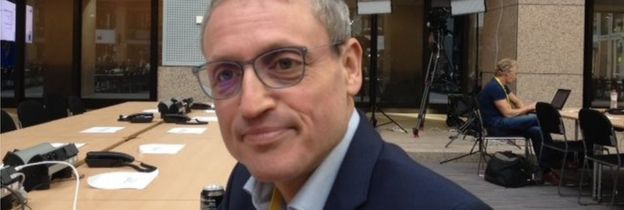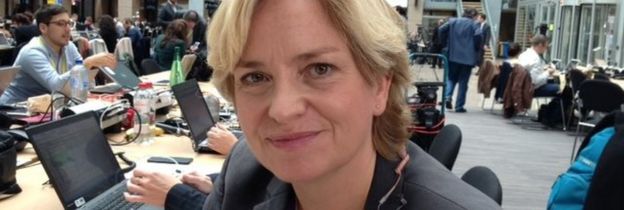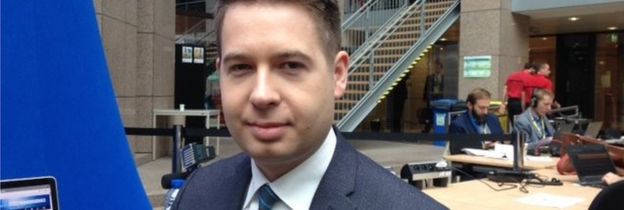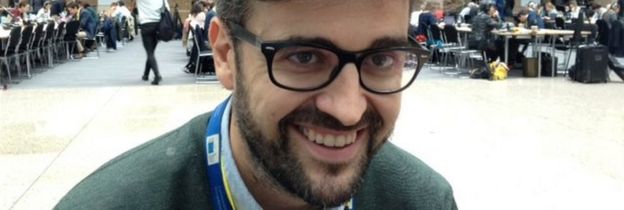?Brexit: How do other EU countries see a ‘no deal’

European Union leaders are meeting in Brussels and at the top of their agenda is a review of the Brexit negotiations. They are demanding better clarifications from the UK over its financial commitments, and the impasse has led to a lot of talk of a “no deal” Brexit.
We ask journalists covering the summit how their countries view the possibility of no formal agreement between the UK and the EU.
Germany: Daniel Brössler, Süddeutsche Zeitung Brussels correspondent

The German thinking now is that a “no deal” scenario is not what you want – of course it would have an impact on British-German trade. But my impression is that the German government thinks that a bad deal, from the European perspective, would be even worse. They are saying we need a fair deal. But if there is no deal we will survive it, it will be tough but the EU will survive it – and Germany has a lot of trade with the rest of Europe.
So far the talks are not seen in Germany as having broken down – people think there is still time to make a deal, that enough progress might be made in December. But people see that there is a risk. Politicians see responsibility for this on the British side – and Brexit has already estranged us to a certain degree. There is a feeling of them and us, you can see a pretty strict mood in Berlin. People say we need a fair deal, but there is no mood to have a deal just to please the British.

Denmark: Lotte Mejlhede, TV2 News correspondent

I don’t think any country in Europe wants a “no deal” result. Business people and politicians in Denmark are very interested in having a good future trade deal with the UK. Denmark has quite a lot of trade with the UK, and we have an issue with the fishing quotas.
Some Eurosceptic politicians want to join the UK outside the EU, but in general the attitude is that we’re better off staying in, and that’s also because of our size – our population is 5.5 million, and it’s quite hard to do big trade deals alone. When the UK leaves, the axis of the EU will be France and Germany.
Now I think everybody is hoping for a deal. But we know businesses are also preparing for the worst-case scenario.

Poland: Maciej Sokolowski, TVN24 News correspondent

People in Poland were just waiting for the announcement on Wednesday by the British Prime Minister [Theresa May] that everyone living in the UK can stay there with the same rights as today. That’s the most important thing for Poles living in the UK, the guarantee that they can stay. The change of tone was really important. There were rumours like: “Do we have to go back to Poland?” and “Do we have to leave our jobs now?”
Brexit isn’t the main topic now in Poland. Of course there’s about a million Polish people in the UK, but Poles are not talking much about the money, or the Ireland issue. On freedom of movement – the UK isn’t in the Schengen area, so it shouldn’t be much worse after Brexit. But no-one knows now what no deal really means.
We still see the UK as our biggest friend in the EU, with Hungary. So after Brexit it will be a political problem for Poland, being without our main friend in the EU.

Spain: Adolfo Lorente, El Correo correspondent

Ordinary people don’t understand what has happened with the UK. The situation is very complicated. We read that the UK is very angry with the EU, that it doesn’t want to pay the bill. People don’t understand the economic impact, but it’s very important for Spain – we export fruit, wine. Many Spanish people go to Britain to learn English or work. Now there is a lot of doubt – people ask “What is happening with Brexit?” and “What about exports and passports?”
It’s like the situation with Catalonia – Spanish people feel that they don’t want to be with us, they want to be separate. But we think that being together, united, is better. Gibraltar is also a big issue for us. Patriotism in Spain is very high now.
Theresa May’s support for Spain over Catalonia in exchange for [Spanish PM] Mariano Rajoy’s support over Brexit is a real possibility. Some diplomats here in Brussels smile and say it’s possible.




